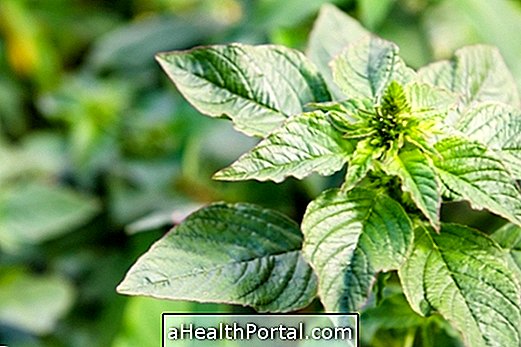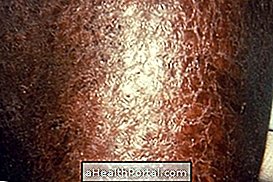The main diseases caused by the snail are schistosomiasis or simply watery belly, eosinophilic meningitis and strongyloidiasis.
Snails are small mollusks easily found in plantations, gardens and even in cities because they do not have predators, reproduce quickly and feed on plants, and can eat even the paints of houses.
In Brazil very rarely there are reports of diseases caused by snails but in other countries diseases are more frequent. The main difference is that usually the snails found here do not contain the parasites necessary to transmit diseases and therefore it is not necessary to despair when finding a snail, in the lettuce foot or walking through the yard, although its elimination is recommended if there is an increase in their quantity.

Major Diseases Caused by Snail
In order for the snail to transmit diseases it must be infected with parasites, which is not always the case. The main diseases that can be caused by snails are:
1. Small garden snail:
Scientifically called Bradybaena similaris, when infected by a parasite can cause a disease called strongyloidiasis. This snail is only 1 cm high and 1.5 cm in diameter and a light brown shell with a darker spiral in the middle.
Strongyloidiasis, such as symptoms of severe abdominal pain, fever, loss of appetite and vomiting, and can cause even bowel perforation, bleeding and in some cases can be fatal.
Few cases have been reported of this disease in Brazil and so it remains a rare disease.
2. Watercress:
Snails that live in fresh water are scientifically called Biomphalari and can cause schistosomiasis because they participate in the transmission cycle of the parasite that infects the human being. This is the main disease caused by the snail in Brazil, and it should be suspected that the river, lake or pond is contaminated if it receives untreated sewage or if there are snails near its beds.
Learn how the cycle of this disease, its treatment and cure is here.
3. African giant snail:
Scientifically called Achatina fulica, when found infected by a parasite can transmit 2 different diseases, strongyloidiasis and eosinophilic meningitis. This has characteristics like about 15 to 20 cm in length and even weigh 200 g.
Eosinophilic meningitis occurs when the worm arrives in the central nervous system, inflaming the meninges that cover the brain. Learn how the treatment of this type of meningitis is done. Strongyloidiasis causes severe abdominal pain that can be confused with appendicitis. These two diseases have rarely been reported in Brazil.
How the contagion happens
Contamination with diseases caused by snail can happen by ingesting their undercooked meat, coming in direct contact with their secretions, since they are full of parasites, or eating food contaminated with these secretions. In the case of schistosomiasis, the person may have no direct contact with the snail but when entering polluted waters, it can be infected, developing intestinal worms.
How to protect and eliminate the snail
To avoid diseases caused by the snail, it is recommended not to consume your meat, not touch it and wash very well all the food that may have come in contact with these animals. Touching a snail or its secretions should wash the area with soap and water.
In addition, the fruits and vegetables should be thoroughly washed with water and then soaked for 10 minutes, completely covered, in a mixture of 1 liter of water with 1 teaspoon of bleach.
To completely eliminate these snails from the environment it is recommended:
- Put on rubber gloves and catch all the snails you find with your hands properly protected;
- Break their shells to avoid the accumulation of water that can serve as a breeding ground for Aedes Aegypti ;
- Store them in a closed can and bury the can or trap them in a high-strength garbage bag. Under these conditions he must die in 2 days.
If you prefer you can put the snails in a can and put the fire on. It is not recommended to put salt on top of them because this will cause their dehydration, releasing intense secretion, which can contaminate the environment with excess salt and also it is not recommended to use insecticides that can harm the soil and contaminate food.
Another way to control the presence of snails is to lure them with a bucket containing beer, they will enter the bucket and drown. Spreading eggshells chopped around plant pots can also be helpful in preventing them from climbing into pots since they can not crawl over these small peels.























